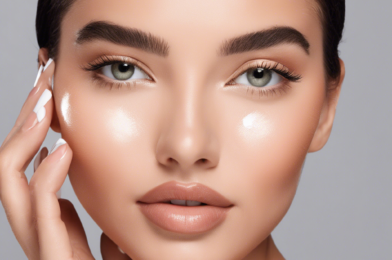Selecting the right skincare products can sometimes feel like a trial-and-error process, especially with the endless variety available. The key is to pay attention to your skin’s needs and understand what ingredients work best for it.
While natural skincare products can be great for general maintenance, they may not always address deeper skin concerns, such as fine lines, acne scars, or discoloration. Their focus is often on nourishing the skin, with fewer active ingredients that target specific issues.
On the other hand, clinical skincare products are specifically formulated to tackle skin conditions. They typically contain higher concentrations of active ingredients like acids, retinol, and peptides that can work wonders for issues like hyperpigmentation, acne, and signs of aging.
However, these potent ingredients can sometimes lead to side effects, such as dryness, redness, or irritation, especially for those with sensitive skin. It’s important to start slow and monitor how your skin reacts when introducing clinical products.
For those with mild concerns, natural skincare may be sufficient. However, individuals dealing with chronic skin issues might find that clinical products offer the results they need more quickly.
Some skincare routines combine both natural and clinical products. For example, you might use a gentle, natural cleanser and moisturizer while incorporating a clinical treatment like a retinol serum at night.
If you’re prone to skin sensitivities or allergies, natural products might be a better choice as they are usually free from synthetic preservatives and fragrances.
When selecting skincare, it’s also important to consider your skin’s current condition. For example, if you’re experiencing a breakout or trying to reverse sun damage, clinical products with ingredients like salicylic acid or vitamin C could be more effective.
Another aspect to consider is how long you’re willing to wait for results. Natural skincare tends to show gradual improvements over time, while clinical skincare may provide faster, more dramatic results.
Consulting a skincare expert or dermatologist can help you navigate between natural and clinical products, ensuring that you’re using the right ingredients for your skin type and concerns. They can also guide you on how to layer products for maximum effectiveness.
Sometimes, switching between natural and clinical skincare products depending on the season or your skin’s needs can be beneficial. For instance, you might need more intensive clinical treatments in the winter, while opting for lighter natural products in the summer.
When choosing between natural and clinical products, remember that consistency is key. Regardless of the type of products you choose, sticking to a routine and giving your skin time to adjust is crucial for long-term benefits.
Ultimately, your skincare routine should be tailored to your unique needs, whether you opt for natural or clinical products, or a mix of both. What matters most is that your products help you achieve healthy, radiant skin in a way that works for you.


